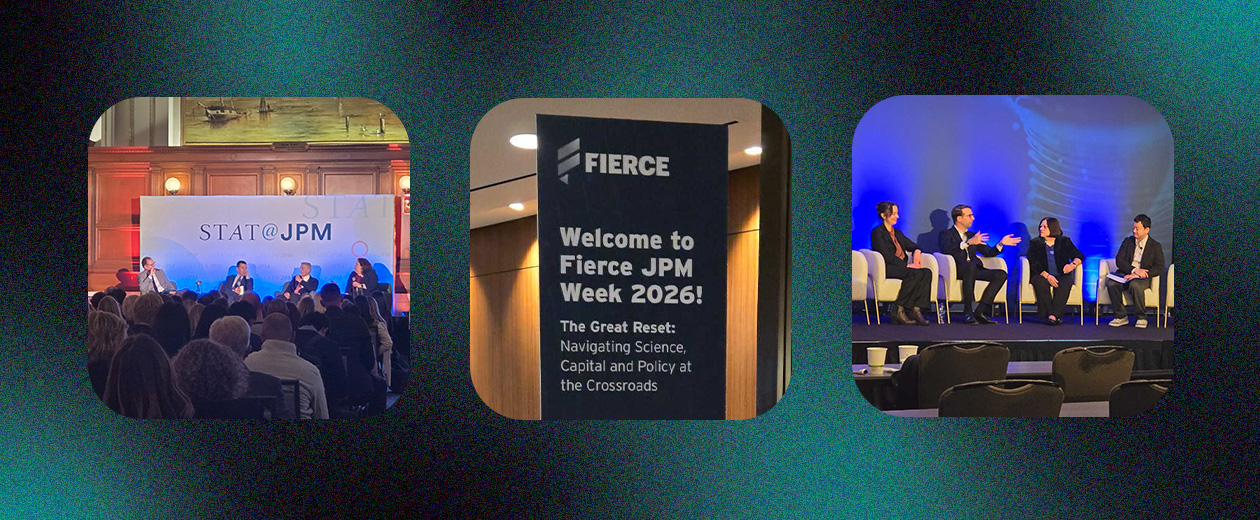
February 2, 2026
February 2, 2026

Reading time
July 10, 2024
October 13, 2023

The emergence of the creator economy has cast a fresh light on storytelling and innovation, with a particularly strong impact across the fintech sector. Here, diversity and authenticity take center stage as the industry shapes its future through ethical practices and a commitment to genuine impact.
At the forefront of this movement stands Nicole Casperson, a versatile journalist, podcast host and the visionary founder of Fintech Is Femme, a newsletter that provides fintech analysis and insight from diverse voices. With over 60,000 industry professionals subscribing to her podcast and newsletter, Nicole has become a trusted source of news, insight and analysis.
Before becoming a recognized fintech figure, her journey began as a finance reporter, covering several niche B2B topics. To date, she has been featured in esteemed publications like LA Times, Nasdaq Trade Talks, and Forbes.com, where she delves into topics like gender equity, financial trends, innovative leadership, and technology. Nicole's influence extends far beyond her media brand. She's been named a Top Inspiring Female in Fintech by NYC Fintech Women, recognized as a finalist for the 2023 DEI Trailblazer at the Fintech Nexus Industry Awards, and has spoken at prestigious events such as Money 20/20, Empire Startups and Future Proof Festival.
We recently caught up with Nicole, who shared some unique insight on “creators” now reshaping the fintech landscape. She also discussed compelling leadership qualities and the ongoing AI arms race.
What follows is an edited version of that conversation.
Growing up, I never really saw people who looked like me represented in the media. That drove me toward journalism, as I wanted to share stories of individuals who had forged unique paths. Almost two years ago, I decided to leave my journalism job and launch Fintech Is Femme. This stemmed from a deep desire to address the narrative gap, particularly in financial services and fintech, by placing women and diverse leaders at the heart of business narratives. In essence, I discovered that many people value my thoughts and opinions beyond traditional reporting, and thanks to the ascent of the creator economy, I've had the opportunity to pursue this further.
The influence of independent creators, especially in the business-to-business media realm, has significantly changed the landscape, and it’s still growing. Consumers, particularly younger generations, are not solely reading one publication to get their news, but are getting it from more diverse sources. This shift has opened up a lot of opportunities for the independent journalist, who can be just as influential, if not more. You’re even starting to see more of this trend in traditional media, where columnists are starting their own newsletters to share their perspectives. I think the biggest difference is that creators don’t have anyone to answer to, so they can pretty much say what they want – and that can draw a very authentic and dedicated following.
<split-lines>"Creators don’t have anyone to answer to, so they can pretty much say what they want – and that can draw a very authentic and dedicated following."<split-lines>
For me, the central focus has always been on financial inclusion. I'm drawn to narratives featuring leaders leveraging financial technology to make a positive impact in the world. While diversity is a crucial factor, I recognize that it can manifest in various ways. I actively seek out leaders who bring a unique perspective, exhibit authenticity, and are equally committed to profitability and creating a sustainable business model that benefits everyone, from the community to their employees. My interest lies in stories that transcend mere product launches, delving into the broader context and bigger picture.
The most experienced people are the true experts. I care about founders who have experienced the issues they aim to solve: For instance, have they experienced being poor or were they denied a loan due to non-traditional income? I look for personal stories and a genuine connection to the problem. If they're reluctant to share personal experiences, it's a red flag.
<split-lines>"The most experienced people are the true experts. I care about founders who have experienced the issues they aim to solve."<split-lines>
I've been covering AI since I became a reporter because it's been around forever. But now, it's become trendy and cool, just like low-waisted jeans. But it’s not about being the first to use it, it’s about showing the impact of it.
One thing about AI, especially LLMs, is that it pulls data from platforms like Reddit, Twitter (X) and other largely male-dominated sites – which means it’s exacerbating bias. If you're going to be aspirational about technology, you must also be well aware of its potential to perpetuate bad practices. AI is capable of that because, at the end of the day, humans create those algorithms and the content that the algorithm is pulling from. So, that's something to be super mindful of.
<split-lines>"One thing about AI, especially LLMs, is that it pulls data from platforms like Reddit, Twitter (X) and other largely male-dominated sites – which means it’s exacerbating bias."<split-lines>
There's a lot of discussion about how to leverage AI to create better underwriting models. This way, we can provide more financial services to consumers who deserve it, rather than just relying on a couple of data points or a historical credit scoring model, which is just B.S., anyway.
I think the discussion needs to be around how we make AI and algorithms more ethical before we jump into, "we need AI for these solutions." Any fintech companies that are using AI just to push a product announcement or something like that are just on the trend train. I would be more interested in a fintech company that takes the time to learn about it first, before deciding how to implement it.

January 28, 2026
January 28, 2026

January 8, 2026
January 8, 2026